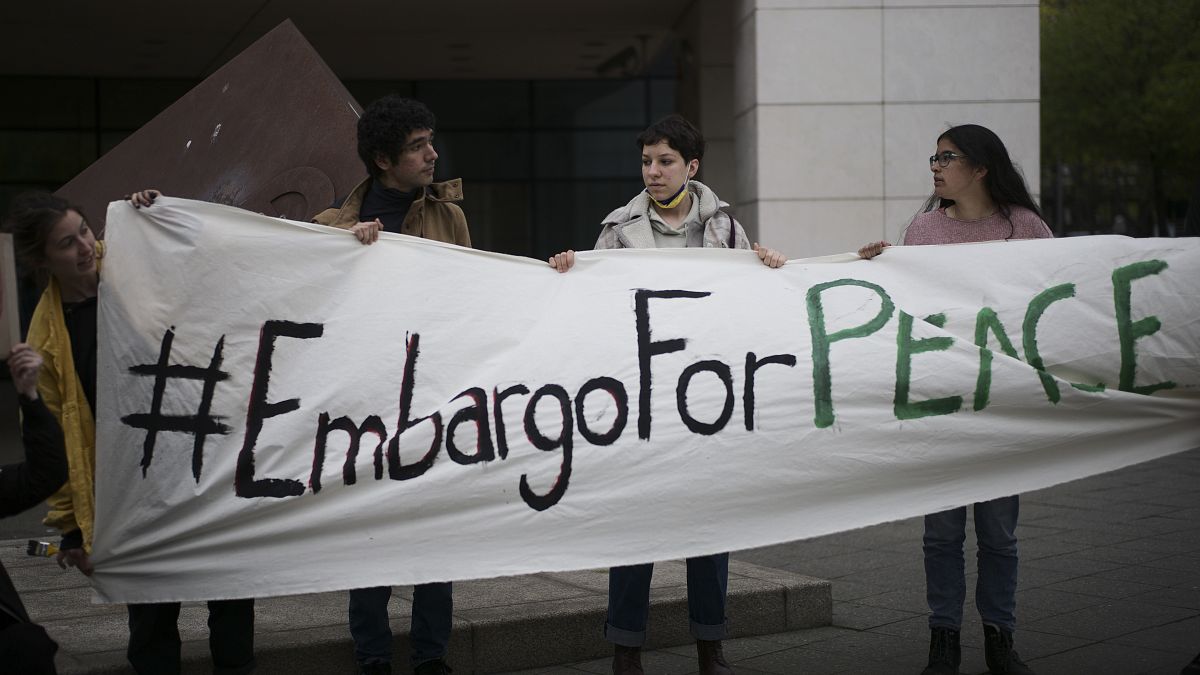Unlike many NATO countries which are sending heavy weaponry to Ukraine, Germany still refuses, despite direct requests from Ukrainian officials.
Germany is in the grip of a political storm as criticism grows of Chancellor Olaf Scholz's handling of the Russian invasion of Ukraine.
“Leading into this crisis Olaf Scholz's strategy seemed to be, do as little as possible as late as possible in order to not be caught out on the wrong side of history," says Jessica Berlin, a visiting fellow at the German Marshall Fund Foundation.
"But right now, his argument is Germany can’t go it alone. Germany can only act in lockstep with our allies. However, that argument is slowly starting to lose water because actually, our allies are doing a lot more.”
The current debate is not just about Germany buying Russian gas, but about Germany’s unwillingness to send so-called heavy arms to Ukraine.
"The question is starting to arise, does the SPD (Social Democratic Party), does Olaf Scholz, think that Ukraine can and should win this war?” asks Berlin.
So what happened to the “Zeitenwende” – the big change in German Foreign policy that Olaf Sholz himself announced?
Dr Liana Fix at the Körber Foundation argues that things are actually moving, but not fast enough for Germany’s allies and a large part of the German public.
“The big gesture of change that Olaf Scholz communicated and presented in the Bundestag is still not filled with actual real content, and people are now really starting to doubt it,” she says.
Opinion polls show that Scholz is actually not in line with the German public.
Most people would like to put a stop to Russian gas imports and supply heavier weapons to Ukraine. But for now, Scholz is unlikely to change.
Reporting from Berlin, Euronews reporter Jona Källgren concludes: “There is criticism from other countries. Criticism from members of the parties that are in government with Olaf Scholz’s SPD, the Greens and the Liberals. But it is unlikely that the German government will change course when it comes to Ukraine."
Watch the report in the video player above.
